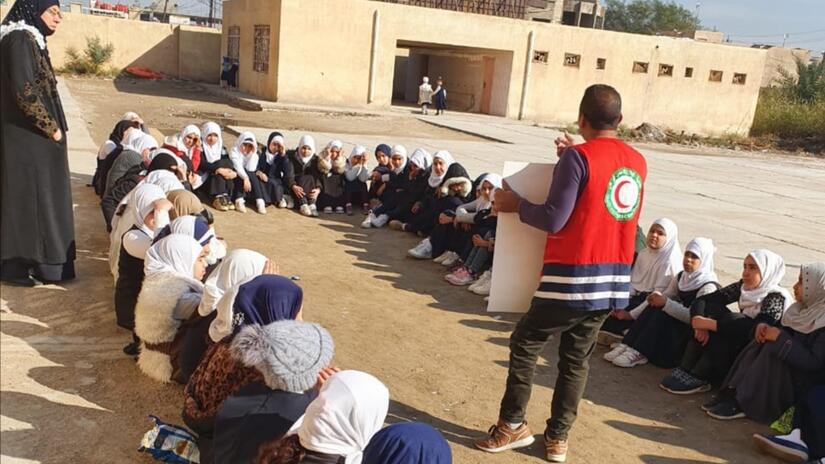As the new coronavirus (COVID-19) is spreading also in the Middle East and North Africa, the Red Cross and Red Crescent national societies in the region are scaling up their preparedness and response, with support from the International Federation of Red Cross and Red Crescent Societies (IFRC).
A global IFRC emergency appeal of 32 million Swiss franc aims to support the national societies across the globe in in their preparedness and response activities to prevent or slow transmission of the virus. The national societies are helping communities affected by the outbreak through community-based health and hygiene promotion, access to basic services, support for containment and treatment, and fighting rumours and stigma with advocacy and accurate information.
Red Cross and Red Crescent help is not a one-size-fits all approach. In each country, the national society is working closely with their health authorities to keep people safe, tailoring their actions depending on the needs and the phase of the outbreak they are in.
In Lebanon, as an auxiliary to the government, the Lebanese Red Cross is transferring people who may have COVID-19 to designated hospitals. The Red Cross has a total of 144 trained emergency medical technicians ready to respond when needed. Almost 300 Red Cross volunteers have also been trained in COVID-19 awareness.
In Iraq, teams of the Iraqi Red Crescent are on the ground raising awareness in communities and schools about how to reduce the risk of COVID-19, stay healthy and protect others.
In Iran, the Iranian Red Crescent is working closely with the health authorities to educate the public about this virus and to share prevention information both online and offline.
Across the West Bank, the Palestine Red Crescent is providing personal protective equipment to ambulance and emergency staff to safely assist people who are sick. The Red Crescent teams are also holding workshops in schools to raise awareness about reducing the risk of the virus.
Teams of the Tunisian Red Crescent are supporting authorities in raising awareness about coronavirus at border crossings.
In Bahrain, volunteers of the Bahrain Red Crescent have been trained on different scenarios related to the novel coronavirus preparedness and response as well as in community outreach.
Management of misinformation and stigma are crucial to control the spread of the virus. Together with WHO and Unicef, IFRC has developed a guide (pdf) to preventing and addressing social stigma associated with COVID-19.
Article
World Radio Day: How radio helps keep communities healthy and safe
World Radio Day: How radio helps keep communities healthy and safe
| Article

